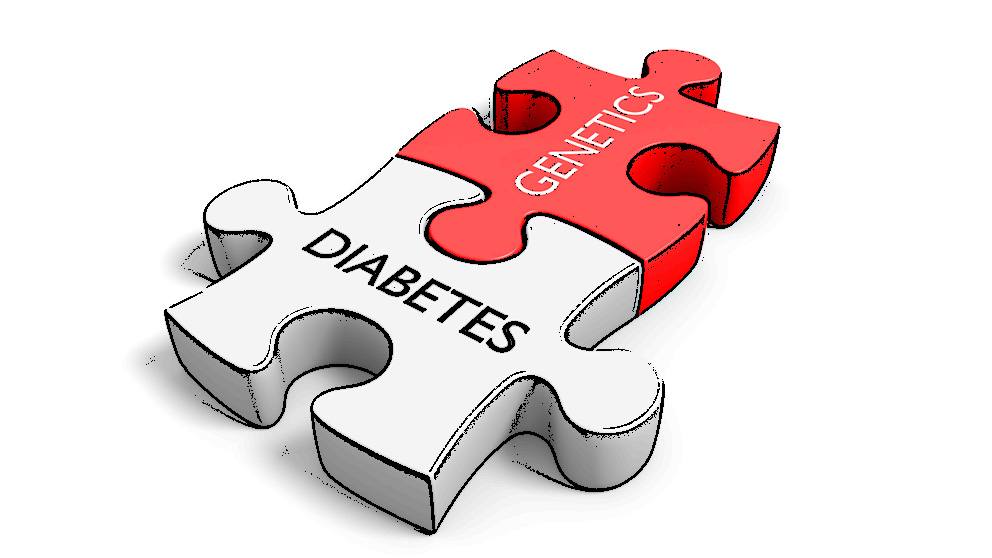Difference Between Type 1 And Type 2 Diabetes Symptoms More
Type 2 diabetes is an impairment in the way the body regulates and uses sugar (glucose) as a fuel. this long-term (chronic) condition results in too much sugar circulating in the bloodstream. eventually, high blood sugar levels can lead to disorders of the circulatory, nervous and immune systems. Healthy lifestyle choices can help prevent type 2 diabetes, and that's true even if you have diabetes in your family. if you've already received a diagnosis of diabetes, you can use healthy lifestyle choices to help prevent complications. if you have prediabetes, lifestyle changes can slow or stop the progression to diabetes. a healthy lifestyle includes: 1. eating healthy foods. choose foods lower in fat and calories and higher in fiber. focus on fruits, vegetables and whole grains. 2. gettin
Skip to content alkaline food diet and type 2 diabetes reverse type 2 diabetes with a diet of 60-80% alkaline-forming foods. menu beating type 2 diabetes with alkaline foods an. Currently, they are reporting that people of any age with certain underlying medical conditions, including type 2 diabetes, are at increased risk of severe illness from covid-19. based on what the cdc is reporting at this time, people with type 1 or gestational diabetes might be at an increased 2 type and diabetes risk for severe illness from covid-19.
Diet and exercise in most cases, type 2 diabetes treatment begins with weight reduction through diet and exercise. a healthy diet for a person with diabetes is: 1. low in saturated fats and cholesterol 2. without any trans fats 3. low in total calories 4. nutritionally balanced with abundant amounts of: 1. whole-grain foods 2. monounsaturated oils 3. fruits and vegetables a daily multivitamin is recommended for most people with diabetes. for some people, type 2 diabetes can be controlled just Diabetestype 1 and type 2 facts. diabetes is a chronic condition associated with abnormally high levels of sugar (glucose) in the blood. insulin produced by the pancreas lowers blood glucose. absence or insufficient production of insulin, or an inability of the body to properly use insulin causes diabetes. the two types of diabetes are referred to as type 1 and type 2.
Type 2 diabetes cdc.
Type 2 Diabetes Symptoms And Causes Mayo Clinic
The chance of having type 2 diabetes is closely tied to background. for example, if your heritage is puerto rican, you’re about twice as likely to have type 2 diabetes as someone whose background is south american. diabetes affects hispanics/latinos more. over their lifetime, us adults overall have a 40% chance of developing type 2 diabetes. Type 2 diabetes is much more common than type 1 diabetes, and is really a different disease. but it shares with type 1 diabetes high blood sugar levels, and the complications of high blood sugar. during digestion, food is broken down into basic components. carbohydrates are broken down into simple sugars, primarily glucose.

Type 2 Diabetes And Its Impact On The Immune System
Type 2 diabetes is a chronic condition that affects the way your body metabolizes sugar (glucose) — an important source of fuel for your body. with type 2 diabetes, your body either resists the effects of insulin — a hormone that regulates the movement of sugar into your cells — or doesn't produce enough insulin to maintain normal glucose levels. type 2 diabetes used to be known as adult-onset diabetes, but today more children are being diagnosed with the disorder, probably due to the rise in c Indeed, creating a diet for type 2 diabetes is a balancing act: it includes a variety of healthy carbohydrates, fats, and proteins, according to the national institute of diabetes and digestive. There are two main types of diabetes: type 1 and type 2. both types of diabetes are chronic diseases that affect the way your body regulates blood sugar, or glucose. glucose is the fuel that feeds. Diabetes is diagnosed by testing the blood for sugar levels. blood is tested in the morning after you have fasted overnight. typically, the body keeps blood sugar levels between 70 and 100 milligrams per deciliter (mg/dl), even after fasting. if a blood sugar level after fasting is greater than 125 mg/dl, diabetes is diagnosed. your doctor will examine you to look for: 1. obesity, especially abdominal obesity—a condition that greatly raises a person's risk for type 2 diabetes. 2. high blood pr
Factors that may increase your risk of type 2 diabetes include: 1. weight. being overweight is a main risk factor for type 2 diabetes. however, you don't have to be overweight to develop type 2 diabetes. 2. fat distribution. if you store fat mainly in the abdomen, you have a greater risk of type 2 diabetes than if you store fat elsewhere, such as in your hips and thighs. your risk of type 2 diabetes rises if you're a man with a waist circumference above 40 inches (101. 6 centimeters) or a woma
Type 2 diabetes develops when the body becomes resistant to insulin or when the pancreas is unable to produce enough insulin. exactly why this happens is unknown, although genetics and environmental factors, such as being overweight and inactive, seem to be contributing factors. Diabetes is a lifelong illness. however, people with type 2 diabetes can sometimes restore their blood sugar levels to normal just by eating a healthy diet, regularly exercising, and losing weight. aging and episodic illness can cause the body's insulin resistance to increase. as a result, additional treatment typically is required over time. Type 2 diabetes is a chronic condition that affects the way your body metabolizes sugar (glucose) — an important source of fuel for your body. See full list on mayoclinic. org.
Seeks to identify and educate children with type 2 diabetes and enable them to make the transition to a lifestyle that will lessen complications of the disease. Insulin is a hormone made by your pancreas that acts like a key to let blood sugar into the cells in your body for use as energy. if you have type 2 diabetes, cells don’t respond normally to insulin; this is called insulin resistance. your pancreas makes more insulin to try to get cells to respond. See full list on drugs. com. Type 2 diabetes can be easy to ignore, especially in the early stages when you're feeling fine. but diabetes affects many major organs, including your heart, blood vessels, nerves, eyes and kidneys. controlling your blood sugar levels can help prevent these complications. although long-term complications of diabetes develop gradually, they can eventually be disabling or even life-threatening. some of the potential complications of diabetes include: 1. heart and blood vessel disease. diabetes d

Your treatment plan is likely to require adjustment over time. insulin resistance increases with age. and the insulin-producing cells in the pancreas may wear out as the pancreas tries to keep up with the body's extra insulin needs. after the first few years, the majority of people with type 2 diabetes require more than one medicine to keep their blood sugar controlled. the prognosis in people with type 2 diabetes varies. 2 type and diabetes it depends on how well an individual modifies his or her risk of compli Continued type 2 diabetes. type 2 diabetes used to be called non-insulin-dependent or adult-onset diabetes. but it’s become more common in children and teens over the past 20 years, largely. What is type 2 diabetes? type 2 diabetes, the most common type of diabetes, is a disease that occurs when your blood glucose, also called blood sugar, is too high. blood glucose is your main source of energy and comes mainly from the food you eat. insulin, a hormone made by the pancreas, helps. Type2diabetes is frequently associated with both extracellular and intracellular magnesium (mg) deficits. a chronic latent mg deficit or an overt clinical hypomagnesemia is common in patients with type 2 diabetes, especially in those with poorly controlled glycemic profiles. insulin and glucose ar.

The difference between type 1 and type 2 diabetes with type 1 diabetes, the body doesn't produce insulin and people need to rely on insulin injections to survive. people with type 2 diabetes are. Oct 28, 2020 · people with type 1 and type 2 diabetes may also experience irritability, mood changes, and unintentional weight loss. people with type 1 and type 2 diabetes may also have numbness 2 type and diabetes and tingling in.
Subscribe by Email
Follow Updates Articles from This Blog via Email


No Comments